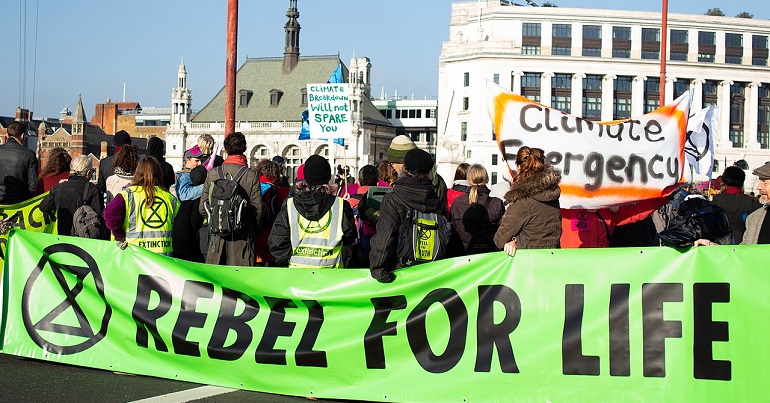The vulnerability of power – on Gaddafi, Mubarak, and the USA
The vulnerability of power always amazes us. When the icons of strength crumble, we are forever astonished. From the fall of the Berlin Wall and Soviet Union to the fall of Ben Ali and Hozni Mubarak, radical change always seems impossible. Until it happens. But happen it always does, and so we shouldn’t be surprised.
As humans, the myth that the world must be as it is infects us all. But none seem more affected than those in power themselves. While we all succumb to the illusion of control, our masters seem most controlled by that illusion.
As Mr Gaddafi is forced from office, he seems to have fallen for the stories he has made up about himself – stories that almost everyone else can now see through. The ‘leader of the revolution’ has forgotten what every revolution reminds us: That humans are strong and humans are brave, and there is nothing, nothing more powerful than humans organising together, bound together, standing up for their future, together; that power is forever vulnerable to solidarity. He may have forgotten, but we shouldn’t be surprised.
We saw the same phenomenon when Mr Mubarak emerged onto our TV screens the night before fleeing Cairo. A man who had ruled with an iron fist for 30 years could not see that the hand of history had turned a page. While the rest of the world understood that his position was no longer tenable – while a casual observer could spot that a dictator who has lost his army has lost the means by which he can dictate – while his own people had lost their fear of his ghoulish façade, Mr Mubarak still bought his own myth. He had for so long projected an illusion of absolute control that even he grew to believe it. Ultimately, only he believed it.
Well, it wasn’t quite just him. Because as protests raged across Cairo, experts around the world proclaimed the death of this murderous regime. Wise heads who had followed Egyptian affairs closely were not surprised to see that Mr Mubarak’s power was crumbling. But the most powerful nation on earth seemed to fail to understand what was happening. US Vice President Joe Biden declared on the 27th of January – two days after demonstrations had begun in earnest – ‘Mubarak is not a dictator, he is our ally’ – He hoped that this torturer in chief should not step down. Such a statement may be morally repugnant. But that shouldn’t be surprising. We’re used to that.
What is amazing is what it shows about US intelligence. Once they realised that change was inevitable, they finally changed their tune. But they were slower than the experts and slower than much of the world, and for too long they clung to the belief that their man would hang on. The US government seemed to spend at least a week behind the news cycle, failing to see the writing on the wall. Did they too fall for the powerful illusion of the permanence of the present? If the decline of US influence has been a theme for the last decade, surely the failure of the State Department to accurately read history unfolding in the Middle East merits a footnote?
Or perhaps some in the State Department bought other fairytales? Perhaps some believed the lie that Arabs do not want democracy? Perhaps, among tales of the War on Terror and Al Qaeda, some analysts and advisers got caught up in the myths their spin doctors were selling the outside world? And perhaps we did too. Because everyone has been surprised -despite the truth that humans want democracy, despite the fact that radical change happens. Despite the fact that we surely always knew that Arabic people – like people everywhere – are capable of heroic acts that can bring a dictator to his knees and the world to our feet. But we shouldn’t be surprised.
We shouldn’t be surprised because the truth is that most of power is illusion. The ability to command guns and command forces and demand murders may matter. But ultimately, power comes from solidarity. Ultimately, people only follow orders as long as they respect or fear the person giving them. Ultimately, as a young Egyptian activist said to me today, dictators die, but the people live on.
And so while we gasp and cheer and cry in awe at the bravery of North Africans and of the peoples of the Middle East, we should not be surprised. That revolution came today is wonderful, beautiful, heroic. But that massive social change happens is not a surprise. Only fools and Blairites believe that the world will always be as it is. In truth, radical change is the only constant in history. And we know this. And so do people in Tripoli, in Benghazi, in Cairo, in Alexandria, in Manama, in Tunis, in Djibouti, and in Aden. And so we should be awed, we should be inspired, but we shouldn’t be surprised.




Leave a Reply